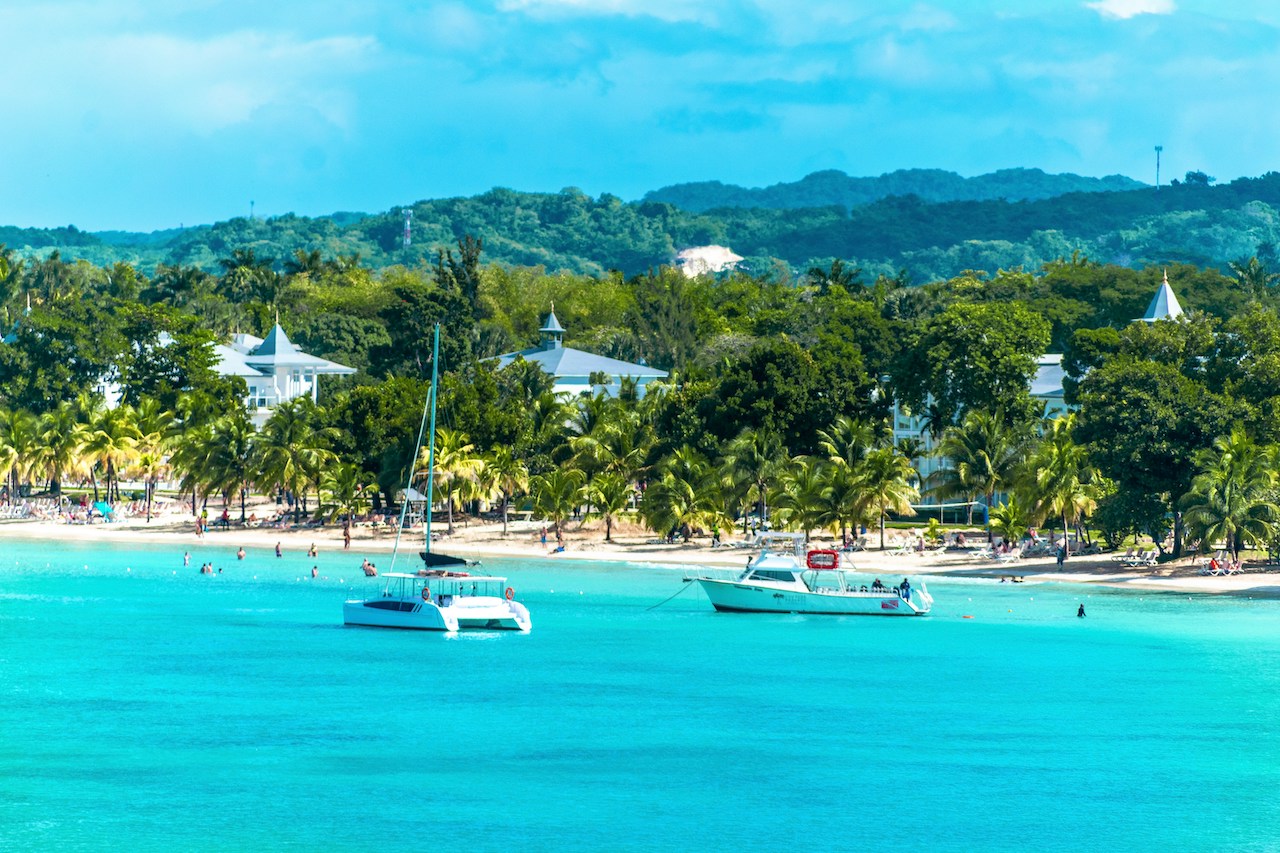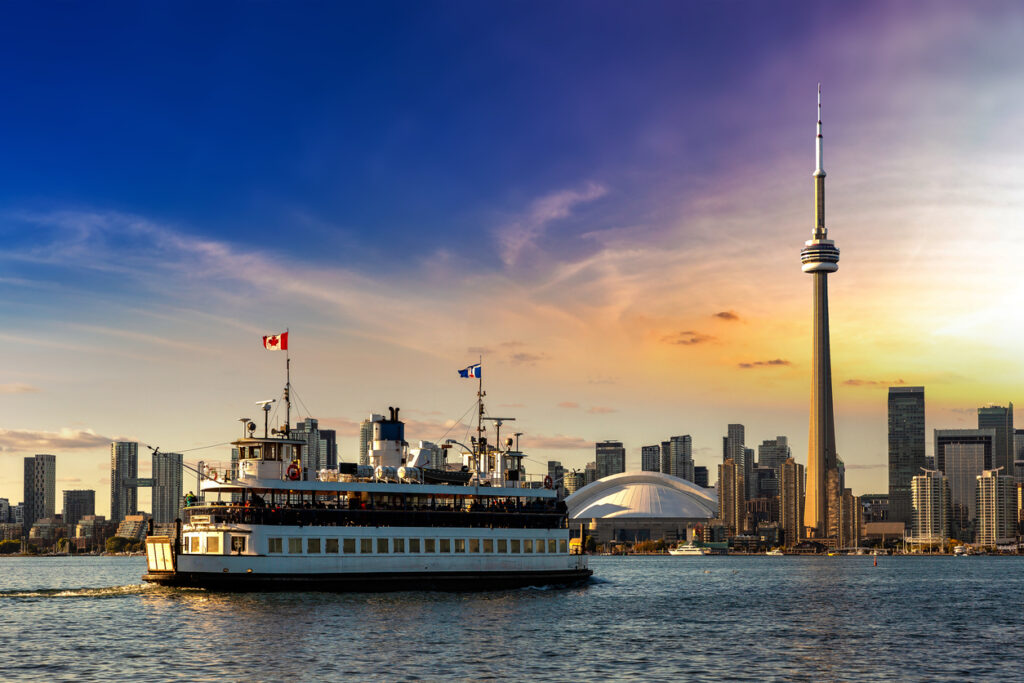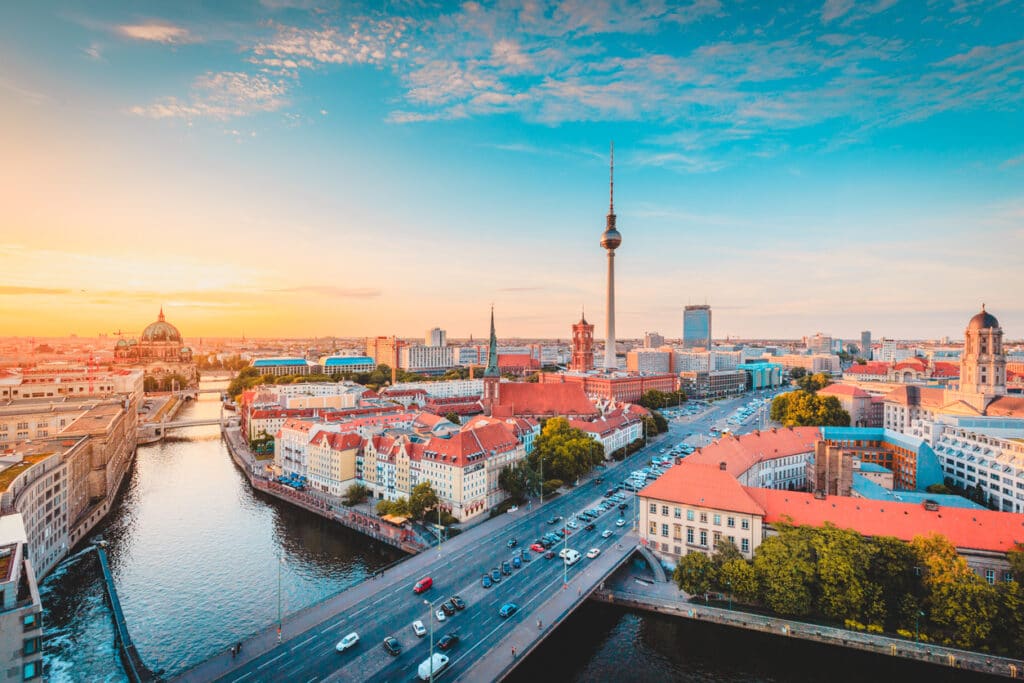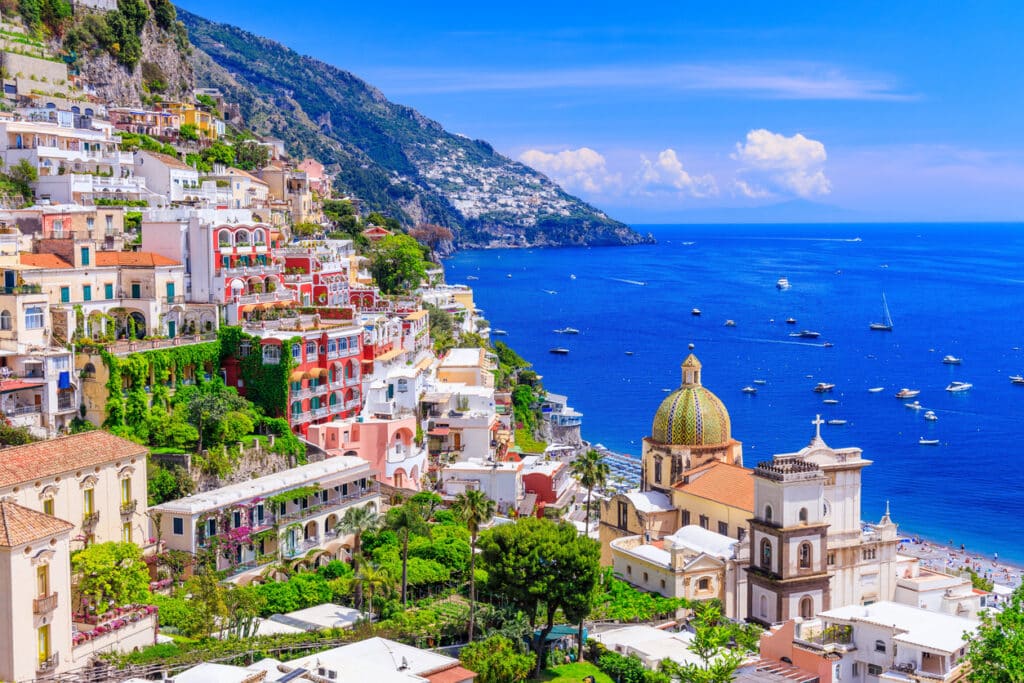Jamaica’s vibrant culture, stunning landscapes, and warm climate make it an attractive destination for many Americans seeking a new home abroad. However, living in Jamaica as a U.S. citizen involves understanding various aspects, from legal requirements and taxation to healthcare and safety. This guide provides essential information for Americans living in Jamaica in 2025, helping you navigate the practicalities of expat life on the island.
Snapshot of expat life in Jamaica
- Primary tax forms: Form 1040 (U.S. Individual Income Tax Return)
- Tax year: January 1 to December 31
- Tax deadline: April 15 (with an automatic extension to June 15 for expats)
- Currency: Jamaican Dollar (JMD)
- Population: Approximately 2.9 million
- Number of Americans living in Jamaica: Data not readily available
- Capital city: Kingston
- Primary language: English
- Tax treaty: No
- Totalization agreement: No
Understanding these aspects can help you better plan and enjoy your time in Jamaica.
Americans living in Jamaica: Visa types
If you’re considering making Jamaica your permanent home, it’s essential to understand the visa options available for U.S. citizens seeking permanent residency. Below are the primary visa categories tailored for long-term stays:
Employment-based permanent residency
Who it’s for: U.S. citizens who have been employed in Jamaica for at least three years.
Overview: This pathway allows individuals who have contributed to the Jamaican workforce over an extended period to apply for permanent residency.
Requirements:
- Valid passport with at least six months before expiration.
- Evidence of continuous employment in Jamaica for a minimum of three years.
- Proof of financial stability, such as bank statements or income tax returns.
- Medical certificate indicating good health.
- Police certificates from both Jamaica and previous countries of residence.
- Two passport-sized photographs certified by a Justice of the Peace.
- Letters of reference from two reputable Jamaican citizens.
Marriage to a Jamaican citizen
Who it’s for: U.S. citizens married to Jamaican nationals.
Overview: Marriage to a Jamaican citizen provides a direct route to permanent residency, recognizing the familial ties established.
Requirements:
- Valid passport with at least six months before expiration.
- Original marriage certificate.
- Birth certificate or Jamaican passport of the Jamaican spouse.
- Proof of financial means to support oneself.
- Medical certificate indicating good health.
- Police certificates from both Jamaica and previous countries of residence.
- Two passport-sized photographs certified by a Justice of the Peace.
- Letters of reference from two reputable Jamaican citizens.
Retirement-based permanent residency
Who it’s for: Retired U.S. citizens seeking to reside in Jamaica.
Overview: While Jamaica doesn’t have a specific retirement visa, retirees can apply for permanent residency by demonstrating financial self-sufficiency and a commitment to residing in the country.
Requirements:
- Valid passport with at least six months before expiration.
- Proof of retirement status, such as pension statements.
- Evidence of sufficient funds to support oneself, like bank statements.
- Medical certificate indicating good health.
- Police certificates from both Jamaica and previous countries of residence.
- Two passport-sized photographs certified by a Justice of the Peace.
- Letters of reference from two reputable Jamaican citizens.
Navigating the residency process can be complex, but understanding these visa categories and their requirements will help you plan your transition to life in Jamaica.
How to apply for a Jamaican visa as a U.S. citizen
Applying for permanent residency in Jamaica as a U.S. citizen involves several straightforward steps. Here’s a clear overview of the process:
1. Choose your visa category
Decide whether you’re applying through employment, marriage to a Jamaican citizen, or retirement. Each pathway has specific requirements, so review these closely.
2. Gather required documents
Prepare the necessary paperwork, which typically includes:
- A valid U.S. passport
- Police certificates from Jamaica and prior countries of residence
- Medical certificate
- Proof of financial means (bank statements, pension, or employment records)
- Two passport-sized photos, certified by a Justice of the Peace
- Letters of reference from Jamaican citizens
- Additional documents based on your visa category (e.g., marriage certificate, employment verification, or proof of retirement)
3. Submit your application
Bring your documents to the Jamaican Passport, Immigration and Citizenship Agency (PICA) office in Kingston, or your nearest Jamaican consulate or embassy if applying from abroad.
4. Complete the interview and pay fees
You may be asked to attend an interview and pay the relevant application fees. Processing times can vary, so be prepared for some waiting.
5. Wait for a decision
PICA will review your application and inform you of the outcome. Approved applicants receive permanent residency status, allowing long-term stays in Jamaica.
Healthcare options for Americans living in Jamaica
Navigating healthcare as Americans living in Jamaica is an important part of your relocation planning. Understanding how Jamaica’s system works and what you can expect as an expat ensures you’re prepared for life on the island.
How Jamaica’s healthcare system works
Jamaica offers both public and private healthcare services:
- Public healthcare: The government operates hospitals and clinics across the country, providing care to residents—often at little or no cost. However, public facilities can experience overcrowding and longer wait times, especially in urban centers.
- Private healthcare: Private hospitals and clinics are available, particularly in Kingston and tourist areas. These facilities tend to offer shorter wait times and more personalized care, but services come at a higher out-of-pocket cost.
Healthcare options for Americans living in Jamaica
As an American expat, you have a few choices when it comes to healthcare:
- Public healthcare: You’ll have access to the public system once you become a resident, but you may need to pay some fees as a non-citizen.
- Private healthcare: Many expats prefer private clinics or hospitals for quicker and more comfortable service. You can pay per visit or use private insurance.
- International health insurance: Some Americans opt for international health insurance plans, which can cover both routine care in Jamaica and emergency evacuation if needed.
- Travel insurance: If you’re not yet a resident, travel insurance can provide short-term coverage for emergencies.
Pros and cons of healthcare for American expats living in Jamaica
Pros:
- Affordable costs compared to the U.S., especially for routine care and prescriptions.
- Access to English-speaking medical professionals.
- Private facilities offer high-quality care, especially in major cities.
Cons:
- Public hospitals can be under-resourced, with longer wait times and limited specialist services.
- Advanced medical care or certain procedures may require travel abroad.
- Private healthcare costs can add up without adequate insurance coverage.
- Rural areas may have limited access to both public and private healthcare facilities.
Cost of living for American expats living in Jamaica
One of the first questions many of us have when considering a move to Jamaica is: how does the cost of living compare to what we’re used to in the States? While the laid-back island lifestyle can be more affordable in some ways, there are some surprises—especially if you’re used to certain comforts or imported goods.
Here’s a side-by-side look at typical monthly expenses for a single person in Jamaica versus a mid-sized U.S. city (all amounts in U.S. dollars):
| Expense | Jamaica (Kingston) | United States (mid-sized city) |
| Groceries | $200–$350 | $350–$600 |
| Housing (1BR apt, central) | $500–$900 | $1,200–$2,000 |
| Transportation (public) | $40–$70 | $70–$120 |
| Phone plan | $20–$35 | $40–$70 |
Note: Costs can vary significantly between urban (Kingston, Montego Bay) and rural areas, and imported items are typically more expensive in Jamaica.
Pros and cons of the cost of living in Jamaica for Americans
Pros:
- Housing and basic services are generally more affordable than in many U.S. cities, especially if you’re open to a local lifestyle.
- Fresh, local produce can be significantly cheaper, especially from markets.
- Public transportation is inexpensive and widely available in urban areas.
- You may find that your retirement or remote-work income stretches further in Jamaica.
Cons:
- Imported goods—especially American brands—can be much pricier than back home.
- Utilities (electricity, internet) can cost more due to infrastructure and import reliance.
- Private healthcare, international schools, and certain types of housing can quickly become expensive.
- Rural areas may offer lower rents but less access to amenities and services you’re used to in the U.S.
- Fluctuating exchange rates can impact your monthly budget if your income is in U.S. dollars.
Adjusting to daily expenses in Jamaica takes a little time, but understanding these differences helps you plan smartly—and avoid surprises as you settle in.
Where do American expats tend to live in Jamaica?
While you’ll find Americans across Jamaica, there are a few spots that consistently attract expats looking for community, convenience, and a slice of island life:
- Kingston: The capital is the hub for business, education, and cultural activities. Many American expats settle in neighborhoods like Liguanea, Cherry Gardens, and New Kingston, where services and amenities are close by.
- Montego Bay: Known for its resorts and international airport, Montego Bay draws Americans working in tourism, retirees, and families seeking a lively expat network with easy access to beaches and healthcare.
- Ocho Rios: This coastal town appeals to those wanting a slower pace without sacrificing access to entertainment, dining, and outdoor adventures. Expats here enjoy a tight-knit community feel.
- Port Antonio: For a more laid-back, nature-oriented lifestyle, some American expats head to Port Antonio, where the scenery is lush and the vibe is distinctly local, with a smaller, close-knit expat group.
Tax implications for Americans living in Jamaica
Let’s face it—navigating taxes as an American living in Jamaica can feel overwhelming. You’re balancing U.S. rules with Jamaican laws, all while trying to enjoy your new island lifestyle. We’ve helped thousands of expats sort through these complexities, and we’re here to walk you through the essentials step by step.
American expat tax obligations
As a U.S. citizen or green card holder, you’re required to file a U.S. federal tax return every year—even if you live permanently abroad. U.S. taxes are based on citizenship, not residency. This means:
- You’ll need to report your worldwide income, not just income earned in Jamaica.
- Common forms include the standard Form 1040, and possibly others if you have foreign income or assets.
- The tax deadline is typically April 15, but living abroad gives you an automatic extension to June 15 (though taxes owed are still due in April).
Missing this obligation can lead to serious penalties, so it’s wise to stay proactive.
Jamaican taxes
If you’re living and earning in Jamaica, you’ll also need to understand your local tax responsibilities:
- Jamaica taxes residents on their worldwide income (just like the U.S.). If you live in Jamaica for more than 183 days in a calendar year, you’re generally considered a tax resident.
- The Jamaican tax year runs from January 1 to December 31, with returns due by March 15 of the following year.
- Income tax rates are progressive, starting at 25%, and rising to 30% for higher incomes.
- Social security contributions (NIS) may also be required.
It’s important to track your residency status and income sources to avoid double taxation or unexpected tax bills.
Foreign Earned Income Exclusion (FEIE)
To help Americans abroad avoid double taxation, the IRS offers the Foreign Earned Income Exclusion (FEIE):
- For tax year 2025, you can exclude up to $130,000 of foreign earned income from U.S. taxes (this amount changes annually).
- To qualify, you must meet either the Bona Fide Residence Test (living in Jamaica for a full calendar year) or the Physical Presence Test (330 days in a 12-month period outside the U.S.).
- This exclusion applies only to earned income (like wages, salary, or self-employment income)—not to passive income like dividends or pensions.
We can help determine your eligibility and make sure you file the right forms (usually Form 2555).
Foreign Tax Credit (FTC)
Paying income tax in Jamaica? The Foreign Tax Credit (FTC) can help you avoid double taxation:
- You may claim a dollar-for-dollar credit on your U.S. tax return for income taxes paid to the Jamaican government.
- This is especially useful if your Jamaican tax rate is higher than your U.S. rate, or if your income isn’t covered by the FEIE.
- You’ll need to file Form 1116 to claim this credit.
The FTC can be a game-changer, but it’s important to coordinate with the FEIE for the best results.
Tax treaty
Currently, there is no income tax treaty between the U.S. and Jamaica. This means:
- There are no special provisions to prevent double taxation beyond the general credits and exclusions already mentioned.
- You’ll need to rely on the FEIE and FTC to manage your tax liability between the two countries.
We keep a close eye on changes in international agreements, so you’ll always have up-to-date guidance.
Reporting foreign bank accounts
If you have Jamaican bank accounts or financial assets, additional U.S. reporting rules apply:
- The FBAR (Foreign Bank Account Report, FinCEN Form 114) is required if your total foreign account balances exceed $10,000 at any point during the year.
- FATCA (Foreign Account Tax Compliance Act) requires Form 8938 for higher-value assets.
- Penalties for missing these forms are steep—even if no tax is due—so it’s crucial to stay compliant.
We offer expert support to ensure you’re meeting these requirements with confidence.
Social Security
Wondering about your U.S. Social Security while living in Jamaica?
- If you’re self-employed, you may still owe U.S. self-employment taxes, as there is no totalization agreement between the U.S. and Jamaica to avoid double Social Security taxation.
- If you’re receiving Social Security benefits, you can generally continue to collect them while living in Jamaica, though you’ll need to keep the Social Security Administration updated on your address.
- Jamaican social security–the National Insurance Scheme (NIS)–is a separate system; if you work for a Jamaican employer, you’ll likely contribute to NIS.
Understanding your Social Security status is vital for both your current finances and your long-term plans.If you’re feeling uncertain, remember—you’re not alone. We’re here to help you make sense of your tax obligations, avoid pitfalls, and make the most of your expat experience in Jamaica.
Frequently Asked Questions
-
Do Americans living in Jamaica have to pay U.S. taxes?
Yes, as an American citizen or green card holder living in Jamaica, you must file a U.S. tax return every year, reporting your worldwide income. Even if you pay Jamaican taxes, you may still owe U.S. taxes unless credits or exclusions apply.
-
What are the main tax differences between Jamaica and the U.S. for expats?
Jamaica taxes residents on their worldwide income, similar to the U.S. However, tax rates, allowable deductions, and filing deadlines can differ. Americans living in Jamaica should be aware of both countries’ rules to avoid double taxation and late filing penalties.
-
How can Americans living in Jamaica avoid double taxation?
You can use the Foreign Earned Income Exclusion (FEIE) to exclude eligible foreign income from U.S. taxes, and/or claim the Foreign Tax Credit (FTC) for taxes paid to Jamaica. Coordinating these options can help minimize your overall tax burden as an American expat in Jamaica.
-
Are Americans living in Jamaica required to report Jamaican bank accounts?
If your total foreign bank account balances (including Jamaican accounts) exceed $10,000 at any time during the year, you must file an FBAR. Higher-value accounts may also require reporting under FATCA rules. Staying compliant with these requirements is crucial to avoid severe penalties.
-
Can Americans collect Social Security while living in Jamaica?
Yes, Americans living in Jamaica can usually receive Social Security benefits. You’ll need to keep your address updated with the Social Security Administration. If you’re working in Jamaica, be aware that there’s no totalization agreement, so self-employment income may be subject to U.S. Social Security taxes.

 Connect on LinkedIn
Connect on LinkedIn

